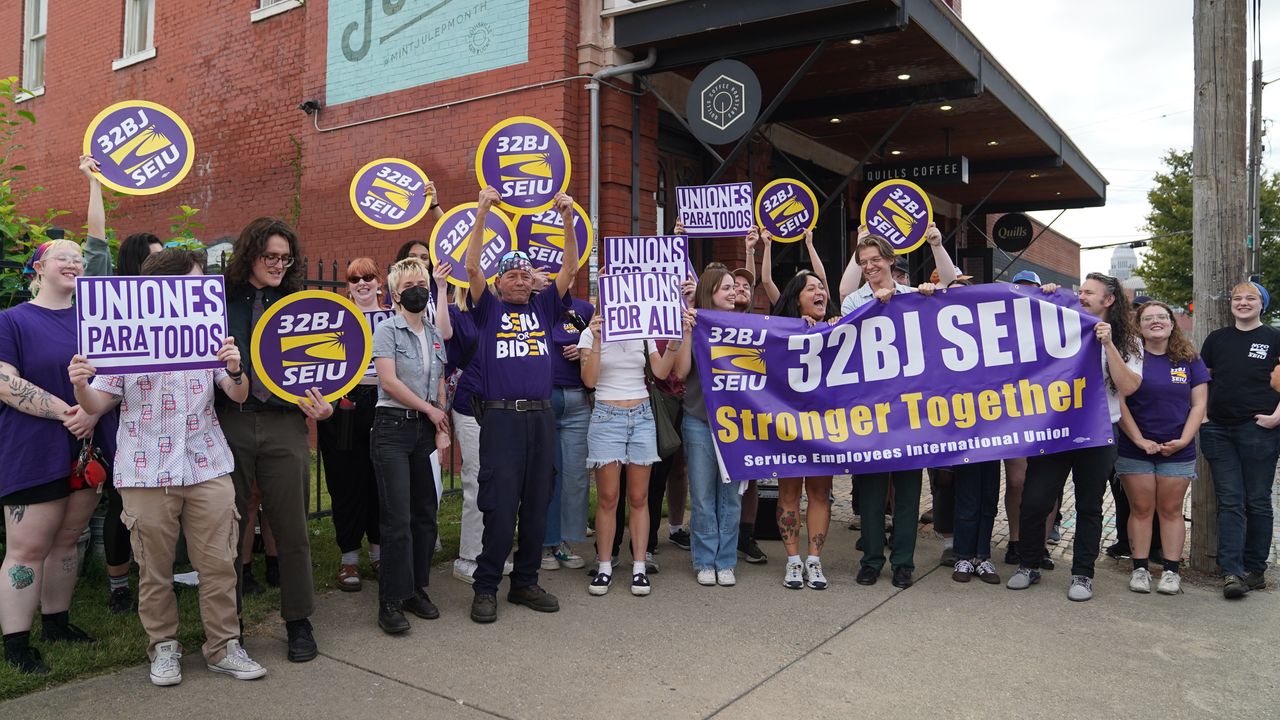Welcome to Deep Dish, a weekly roundup of food and entertainment news. Last week we tried every protein coffee at Starbucks.
No one is safe from cyber attacks, it seems—a lesson Japan’s Asahi Group, maker of the popular Asahi Super Dry beer, learned last week after a significant cybersecurity breach brought its Japanese factories to a standstill.
In a statement, the company said there was evidence of “a potential unauthorized transfer of data,” and that they’d been the target of a ransomware attack. During a week of halted production and shipments, Japanese branches of 7-Eleven and other vendors were advised to brace for a shortage of Asahi products, according to reporting from the BBC. As of this week, and per a recent statement from Asahi, production has mostly resumed, and partial shipments will soon resume.
Also, food critic Tom Sietsema announced that he has stepped down from his position at the Washington Post after nearly 26 years. Wild Cherry, the restaurant inside A24’s revamped Cherry Lane Theater finally opened, and Bon Appétit went behind the scenes with Cameron George, master blender behind SirDavis, the whiskey brand founded by Beyoncé.
Convenience stores and eateries across Japan felt the immediate impact of a cybersecurity attack that ruptured operations for popular beer brand Asahi this week. With systems down company-wide, the beer giant even resorted to filling orders by fax, according to the Independent. Reuters reported that one yakitori joint on its last keg of Asahi had to temporarily switch to Sapporo. “It’s a bit of a problem,” chef Tomiko Yano told Reuters. “We specialise in yakitori (skewered chicken) and it pairs really well with Super Dry. A lot of customers say that, so I’m a little worried (about the shortage).” As of this Monday production has resumed, but the reverberations of the event reflects beer’s intrinsic tie to national identity (like Guinness to the Irish). The incident on one hand shows how one beverage brand can wield the power to quietly unify a country—while also revealing how vulnerable that unity is to mere technological frameworks. —Li Goldstein, associate newsletter editor
After nearly 26 years of anonymity—hiding his identity even in photos with family and friends—Tom Sietsema announced he has retired from his position as food critic at the Washington Post. He also finally shared a picture of his face. (So that’s what he looks like!)
His departure may very well mark an end to the “anonymous restaurant critic” era. The San Francisco Chronicle’s Mackenzie Chung Fegan abandoned anonymity on day one, and the New York Times’ dual critics Tejal Rao and Ligaya Mishan went as far as starring in several videos to announce their tenure at the paper. No more blurry, outdated pictures for servers to reference when a possible critic takes a seat at their table. Remaining a figure of mystery, or donning disguises (a practice pioneered by the late Mimi Sheraton), might have made sense in years past, but in a video-first social media-centric age, it’s near impossible to be unknown. —Sam Stone, staff writer
Indie film studio A24 purchased New York’s century-old Cherry Lane Theatre this summer and furnished the lobby with a full-service restaurant, helmed by alums of buzzy city restaurants like Frenchette, Le Rock, and Le Veau d’Or. According to writer Chris Crowley’s scene report from the restaurant in Grub Street, the dining room exudes an old-fashioned feel despite its recent makeover, featuring “plush green banquettes,” a checkered floor, and cherry motifs on the walls. As for the food, the New York Times counts “seafood raw and cooked, steak tartare, Caesar salad, burger, [and a] lobster club sandwich” among its menu offerings. It’s a space for the foodies and the cinephiles of New York to congregate and ostensibly kill two cultural cachet birds with one stone—trying the latest hot restaurant and A24 release in one fell swoop. —L.G.
SirDavis, a liquor brand created by Beyoncé, isn’t trying to be like other American whiskies. For one, it’s finished, blended, and barreled in Dallas, where the high humidity means alcohol evaporates faster than water, resulting in a lower proof in the barrel. For another, the SirDavis team doesn’t see this as just another celebrity vanity project. In an interview with Bon Appétit, George went deep on his vision for the brand and how he’s helping to forge a new path in American whiskey. —S.S.


